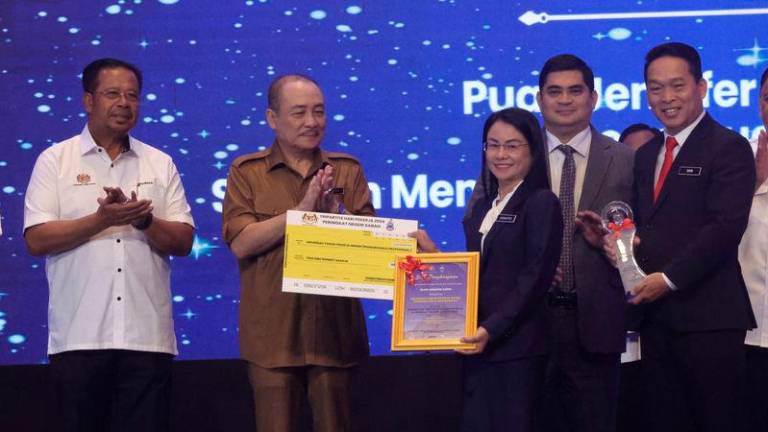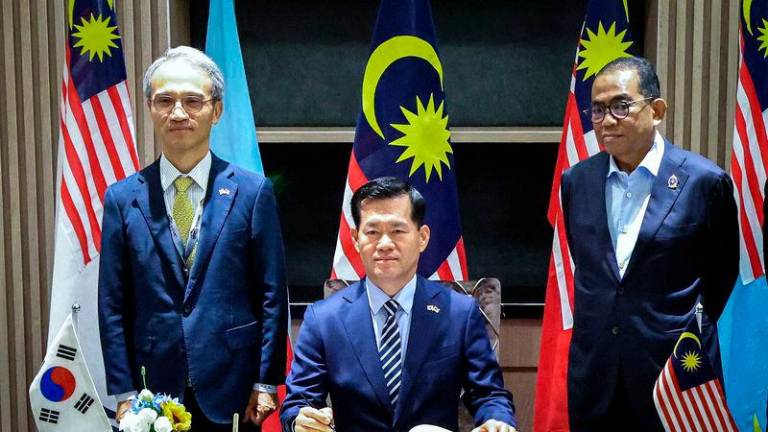IN the recent flood horrors, Mother Nature issued us yet another reminder on the urgency of preserving our environment, keeping our cities clean and reducing carbon emissions.
Firstly, make no mistake that floods are not a singular act of God. Instead, scientists say severe floods in general, like other extreme weather events, are increasingly a result of human-caused global warming and its ensuing rising sea levels.
Secondly, we can only expect natural disasters to be more frequent and deadlier with accelerating climate change, as the Intergovernmental Panel on Climate Change warned us years ago. For Malaysia, this means dealing with recurring floods, sinkholes, landslides, droughts, tsunamis and the like, on a grander scale.
Indeed, at the global level, it takes the effort of all countries if we are to halt and reverse climate change. Similarly, for our country, we need a “whole of government” approach that brings all government agencies to the same working table, if we are serious about upholding environmental conservation.
At present, there is no central agency that actively coordinates environmental sustainability efforts of all ministries and state governments. The burden of ensuring sustainable development throughout the nation currently falls on the shoulders of the Environment Department (DoE) (under the Environment and Water Ministry). It is a small department with limited powers. Undoubtedly, this is a tall order and too much to ask of any single government department. Even more so since no one ministry can coordinate another unless it is a central agency.
Herein precisely lies the problem and potentially the solution. Our single pursuit of economic growth has led to significant environmental degradation that has boomeranged to hit us in the form of unmitigated natural disasters. Therefore, we should, henceforth, coordinate environmental preservation in tandem with economic planning, in order to achieve the ultimate goal of national sustainable development.
The time has come to mainstream sustainable development through national coordination. For this to happen, economic and environmental concerns have to be evaluated more rigorously, together in concert.
At the federal level, coordination can unlock synergies from the collaboration of ministries and departments. While at the state level, liaison with the respective state economic planning units is crucial, especially on environmentally sensitive economic activities. These include logging, mining, development of forest and river reserves, river polluting industrial and agricultural activities, poor farming practices, over fishing, the list goes on.
With active federal involvement and consultation, we can expect stronger natural environment protection than the status quo, especially for our water catchment areas, highlands, river reserves and natural forests.
Undeniably, when it comes to land use for economic activities, land is a state matter. But for Peninsular Malaysia, the federal government coordinates land development through the Department of Director-General of Lands and Mine under the Energy and Natural Resources Ministry.
It is important to note that the Department of Director-General of Lands and Mine has more powers and enforcement officers than DoE. Until recently, these two agencies have always been under the same ministry for the synergies in environmental protection.
With these two entities now separated, there is a greater need for coordination of environmental preservation. As this effort cuts across various ministries, a “whole of government” approach can begin to solve economic-environmental issues concurrently (not consecutively).
Critical government agencies from other ministries can now join the war room. These include the Malaysian Green Technology and Climate Change Corporation and the Public Works Department, among many others. To effectively lead the war room, a higher authority than any single ministry will be key.
By coordinating both environmental and economic development, especially involving huge land areas, we can expect the environmental impact assessments to be taken more seriously. One-stop centres for land development will be more holistic, involving multidisciplinary input, prioritising eco-friendly, low carbon footprint and non-flood exacerbating projects.
Expect rigorous environmental, social, and governance tracking from each ministry regulating their area of responsibility from the likes of the International Trade and Industry Ministry (industries), Agriculture Ministry (agriculture) and Energy and Natural Resources Ministry (mining).
Before any approval, the true economic benefits and environmental costs will be weighed and measured more fervently. You can argue longer lead times in investment approvals will make us less competitive. But can the promise of more jobs and higher incomes justify the lives and properties lost from disasters resulting from our neglect of the environment?
Our prime minister has said that the government is looking for a comprehensive long-term solution to floods. Besides the obvious need for better disaster response, sustainable development will be crucial in preventing or reducing future billion-ringgit disasters.
With estimated losses from the recent floods standing at RM6.5 billion, human-induced natural disasters are a colossal economic problem and, rightly, should be addressed in sync with economic planning.
The responsibility of coordinating national sustainable development should be elevated to a central agency, allowing the Environment Department to focus its function better as an operating agency.
The time for environmental coordination by a central agency is now or never. As the saying goes, an ounce of prevention is worth a pound of cure. We must seek to address the causes of costly natural disasters rather than propose more projects to tackle its outcome.
The outdated focus on the economy alone no longer deserves the single spot at the top of the priority pyramid. To plan our future better, equal emphasis has to be placed on both the environment and the economy.
To ensure the sustainability of economic development, economic benefits and their costs to the environment must be evaluated jointly and systematically, like two peas in a pod.
Comments: letters@thesundaily.com










